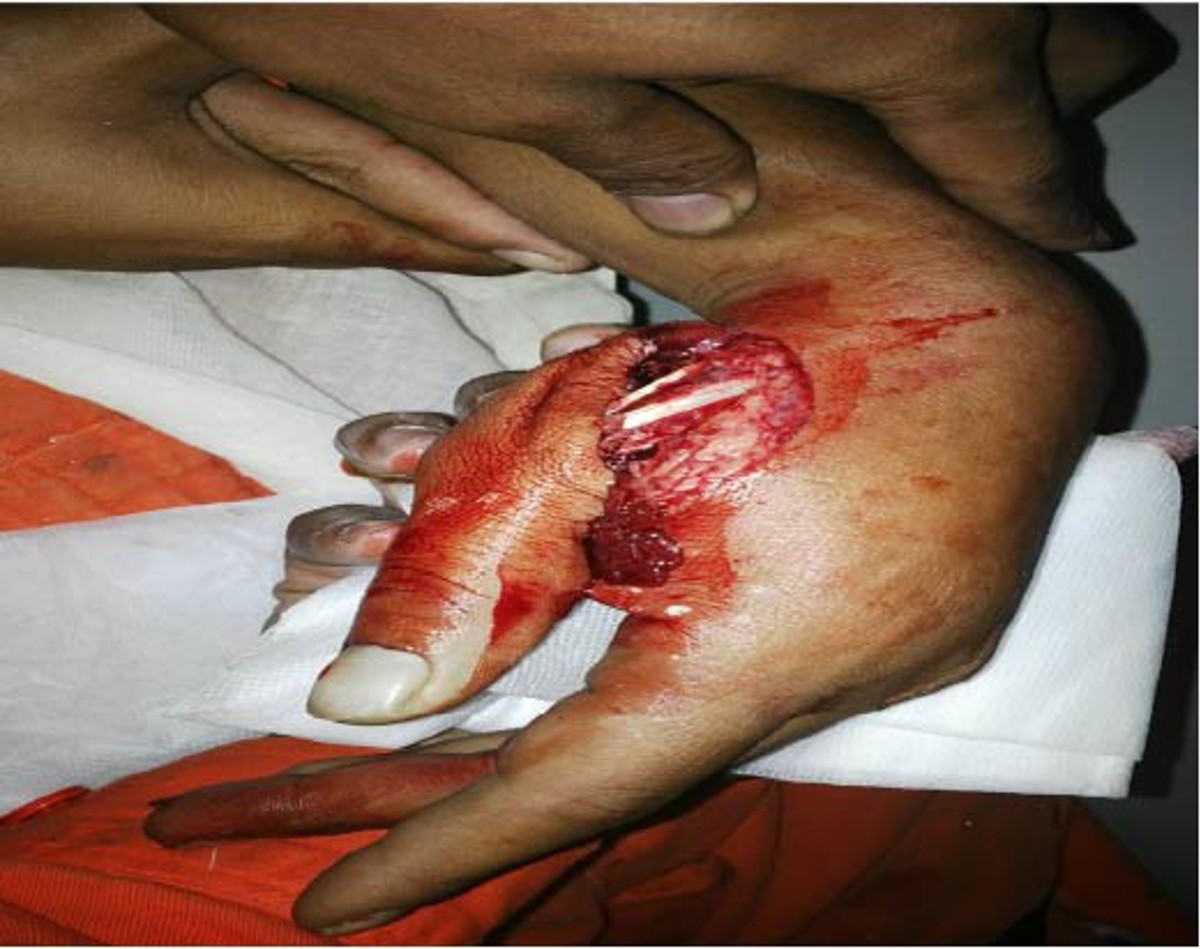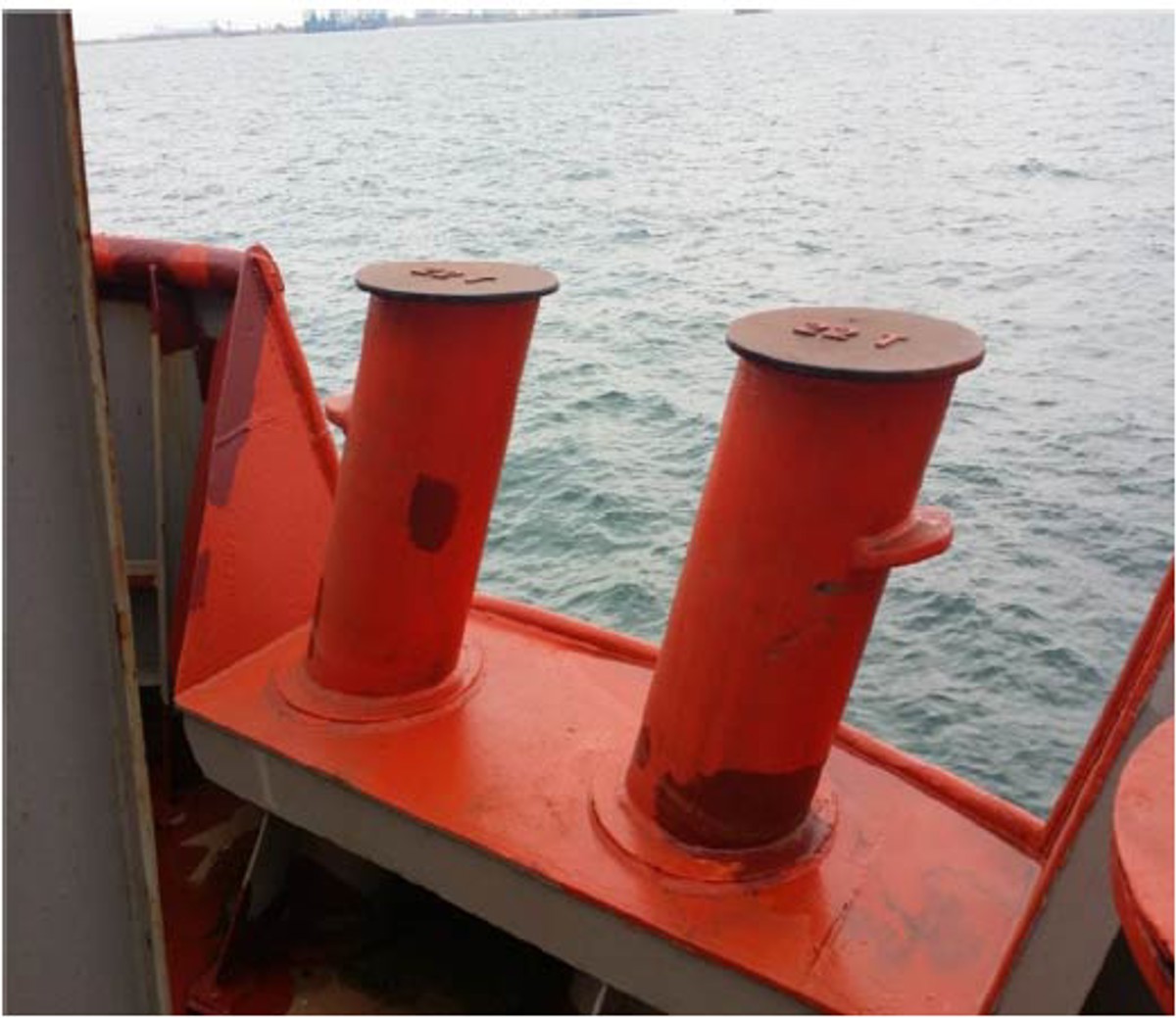Lost time injury (LTI): Hand injury during mooring operations
- Safety Flash
- Published on 16 January 2015
- Generated on 2 March 2026
- IMCA SF 01/15
- 3 minute read
Jump to:
A Member has reported an incident which a crew member injured his hand during mooring operations.
What happened?
The incident occurred when a bunker barge was beginning an approach to the port side of a Platform Supply/multipurpose Vessel (PSV) at anchor, for bunkering operations.
The crew of the bunker barge passed the ‘messenger line’ to a crewman on the PSV, along with two mooring ropes. The crewman took the ropes and put the eyes of the two mooring ropes on each of the twin bollard on the aft and returned the messenger line to the bunker barge crew. The crewman on the PSV then considered that the mooring operation was over and started to walk away towards the accommodation. As he reached amidships the master of the bunker barge got his attention and indicated to him that he should go aft again and shift one of the mooring ropes to the other bollard. He returned to the aft bollard. The barge crew slackened the mooring rope a little and he tried to remove the rope. At that moment there was sudden tension on the rope (due to relative movement between the vessel and bunker barge) and his left palm got stuck between rope eye and bollard. He suffered severe laceration injuries to his left hand.
First aid was given, then the injured person was taken to the ship’s hospital for further checks, before going ashore to hospital for further treatment.

injuries to the crewman's hand

bollards where incident occurred
Findings
Our member’s investigation established the following:
- The incident occurred when the injured person agreed to shift the rope from one bollard to the other without insisting on the rope being sufficiently slackened. He failed to take into account the relative movement of the vessels, which led to his hand getting stuck between the eye of the rope and the bollard.
- There was no very high frequency (VHF) communication established between the bridge of PSV and the bunker barge.
- The injured person was not in VHF communication with the duty officer and was taking instructions directly from the bunker barge Master and crew.
- The injured person was attending to the moorings alone, which was contrary to the job hazard analysis, which required attendance in pairs.
Lessons learnt
Our member identified the following lessons:
- Vessel’s bridge to establish VHF communication with other vessel before agreeing to start the mooring/unmooring operation.
- Both forward and aft station deck crew to be in VHF communication with duty officer on the bridge.
- Ship crew to take instructions from the duty officer regarding number of ropes being passed and shifting of ropes and not from the barge crew directly.
- Additional control measures during mooring and bunkering operations should include the importance of risk assessment taking place before work starts.
- Review the company Manual of Permitted Operations specifically with regard to weather conditions.
- To ensure Buddy System at workplace especially during night time operation to work as a team to spot dangers.
Related safety flashes
-
IMCA SF 11/14
8 July 2014
-
IMCA SF 02/08
4 February 2008
IMCA Safety Flashes summarise key safety matters and incidents, allowing lessons to be more easily learnt for the benefit of the entire offshore industry.
The effectiveness of the IMCA Safety Flash system depends on the industry sharing information and so avoiding repeat incidents. Incidents are classified according to IOGP's Life Saving Rules.
All information is anonymised or sanitised, as appropriate, and warnings for graphic content included where possible.
IMCA makes every effort to ensure both the accuracy and reliability of the information shared, but is not be liable for any guidance and/or recommendation and/or statement herein contained.
The information contained in this document does not fulfil or replace any individual's or Member's legal, regulatory or other duties or obligations in respect of their operations. Individuals and Members remain solely responsible for the safe, lawful and proper conduct of their operations.
Share your safety incidents with IMCA online. Sign-up to receive Safety Flashes straight to your email.